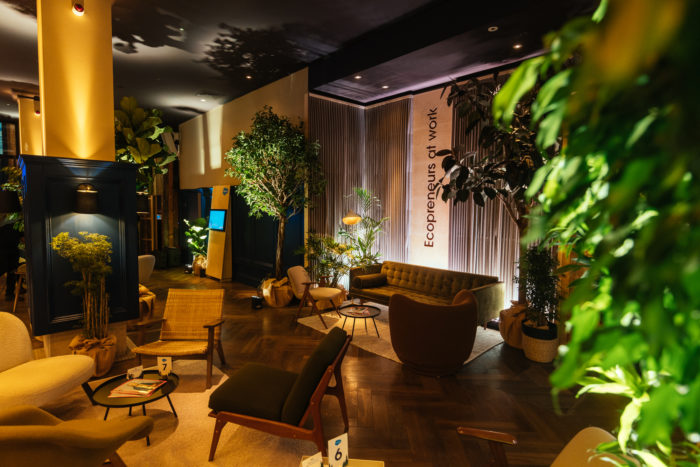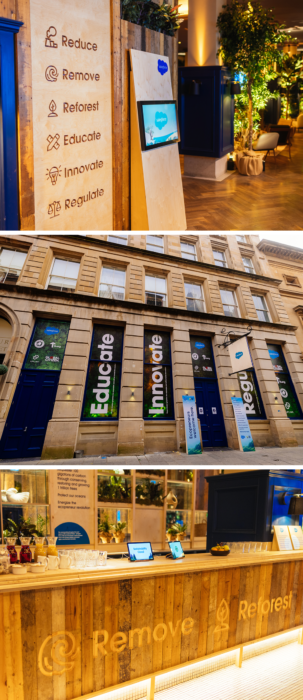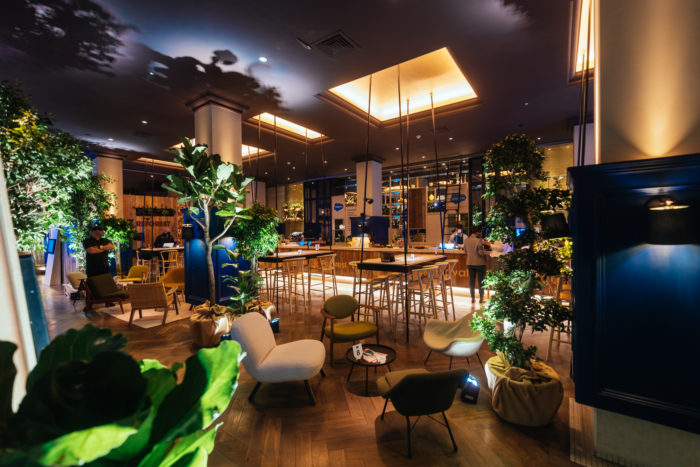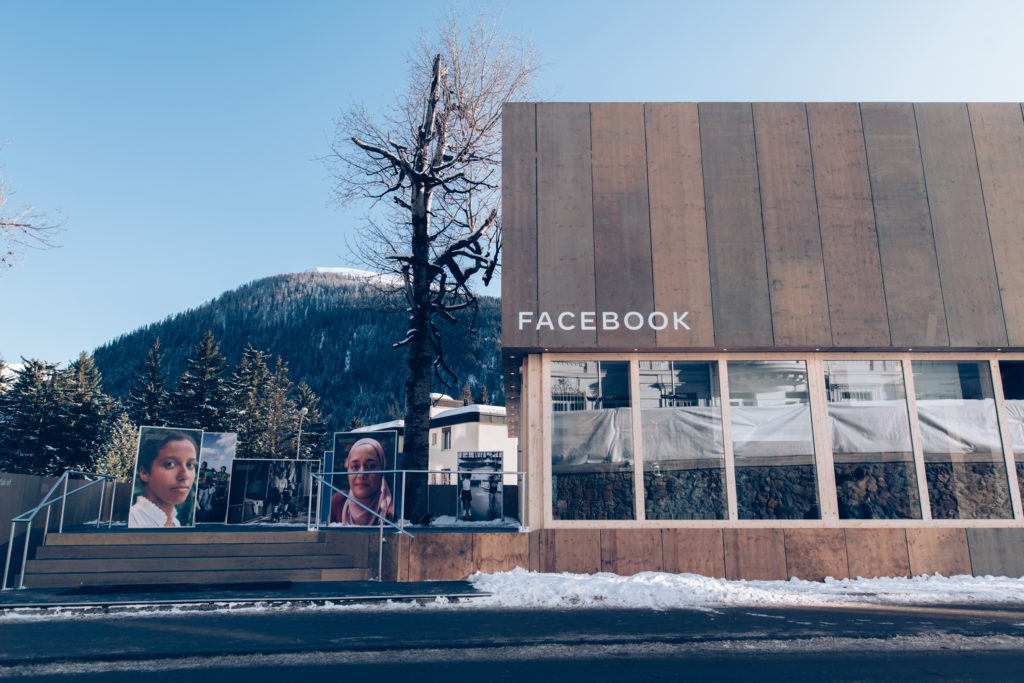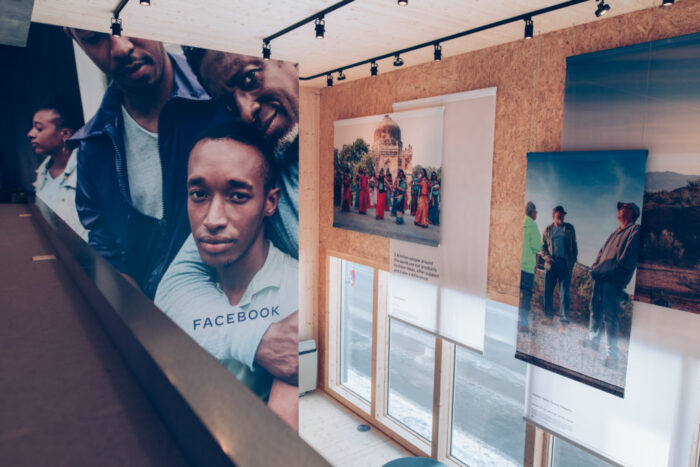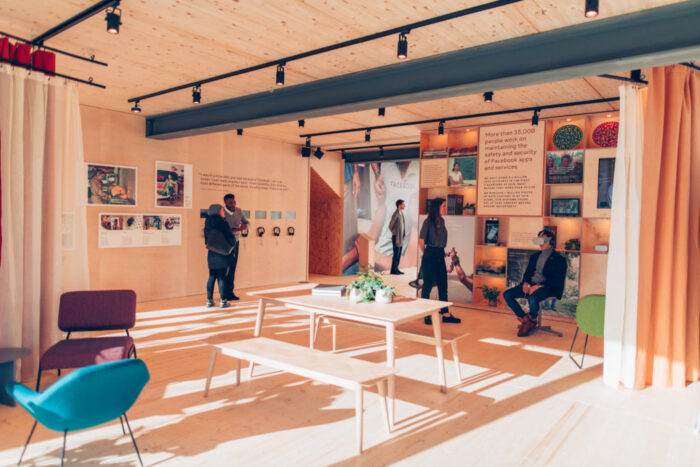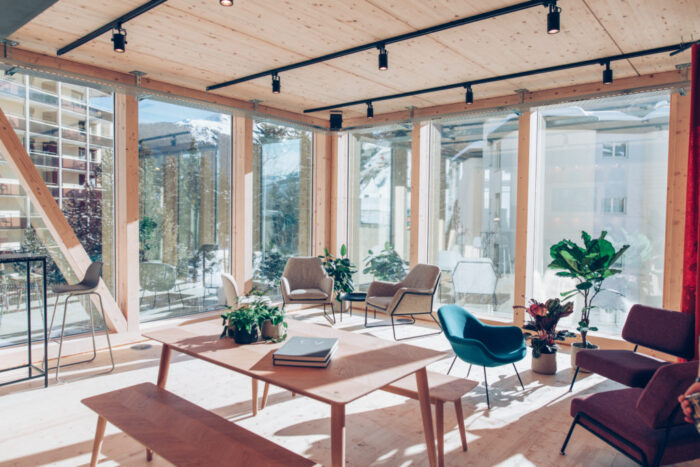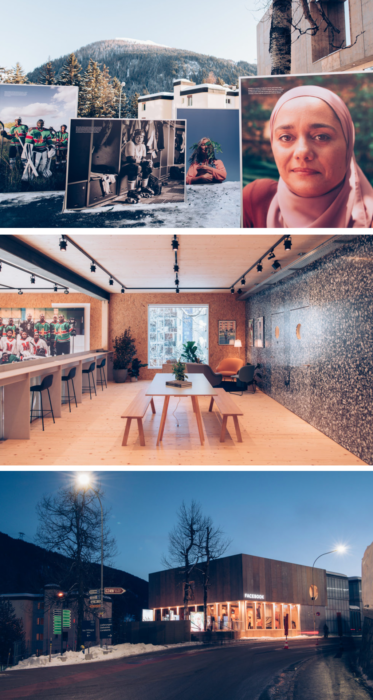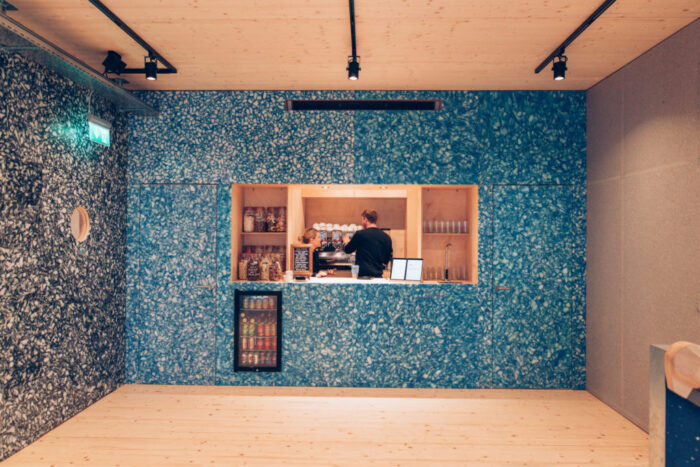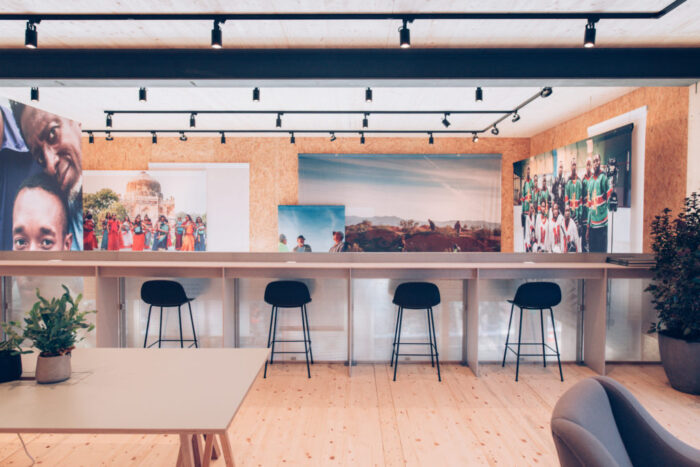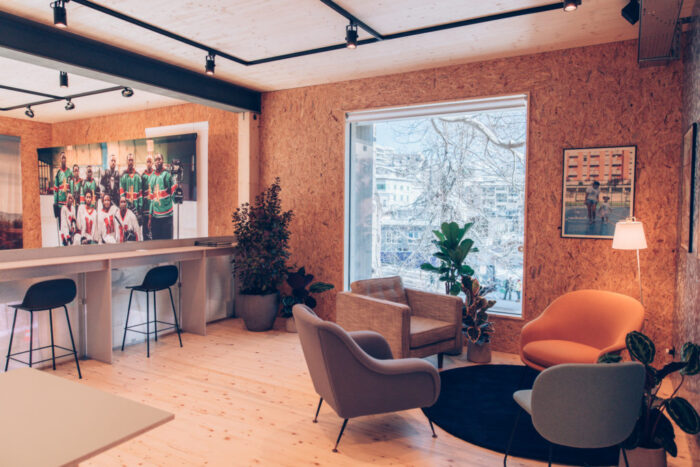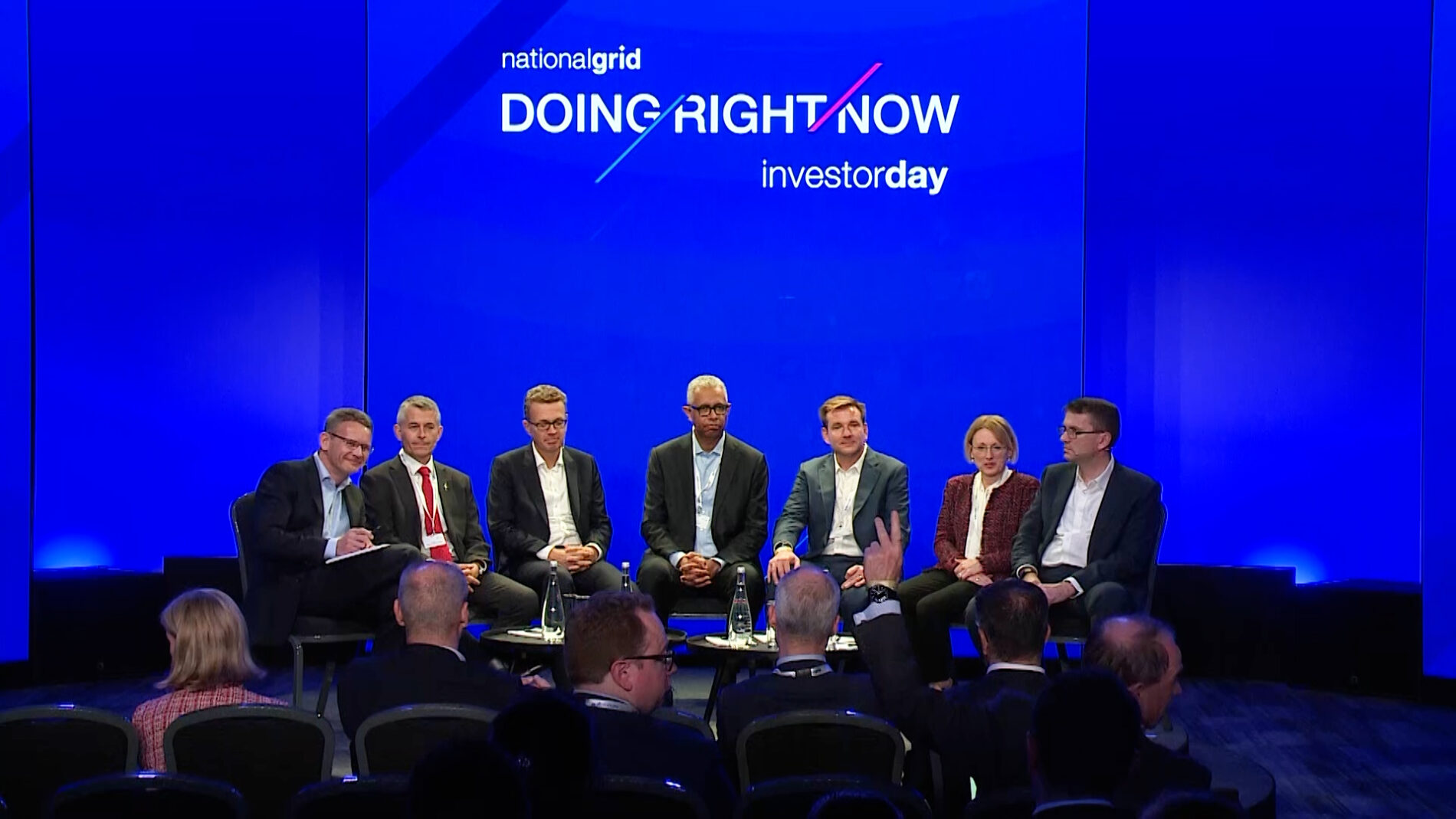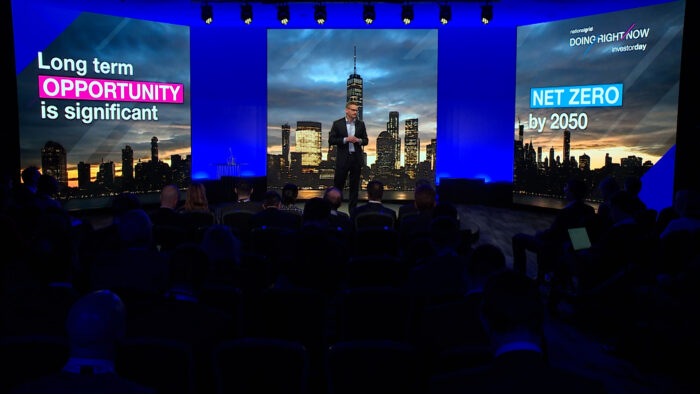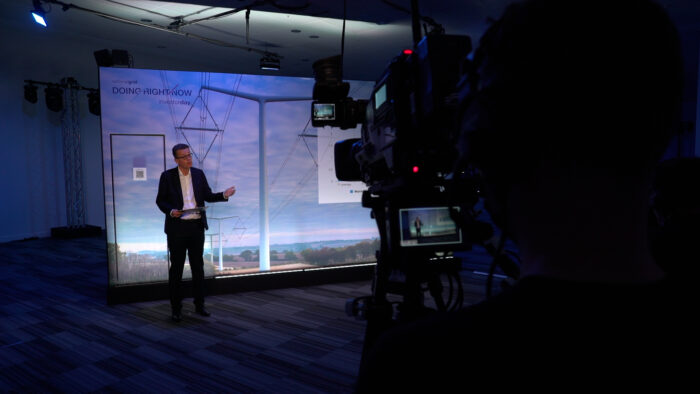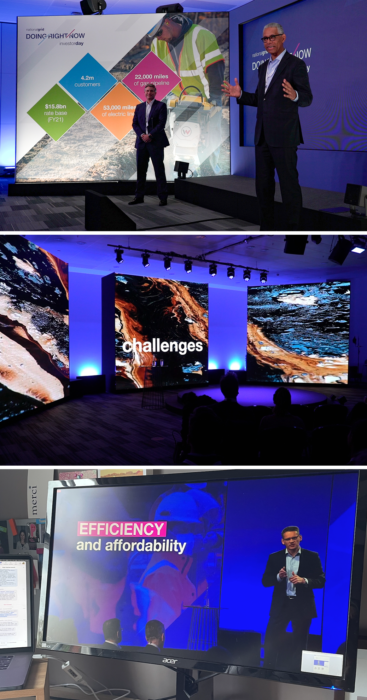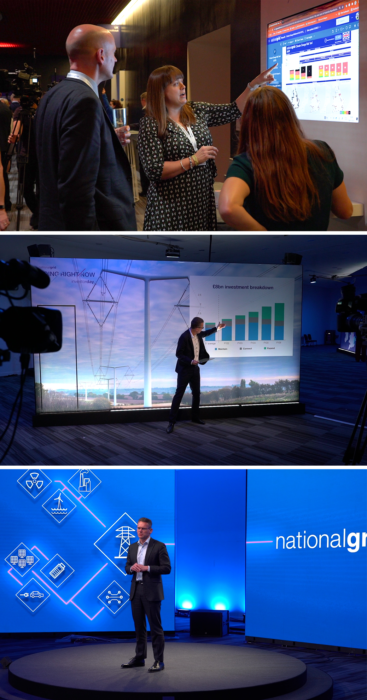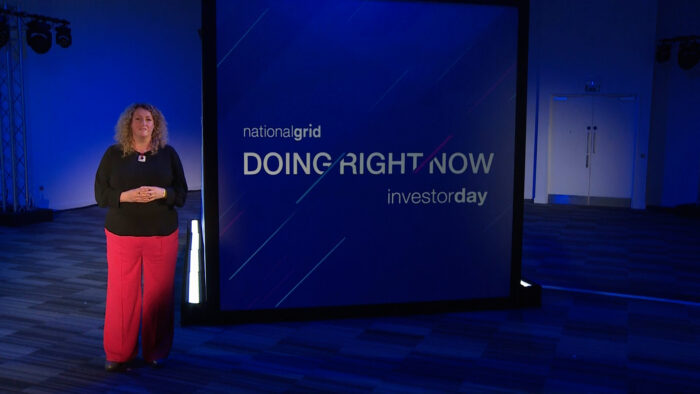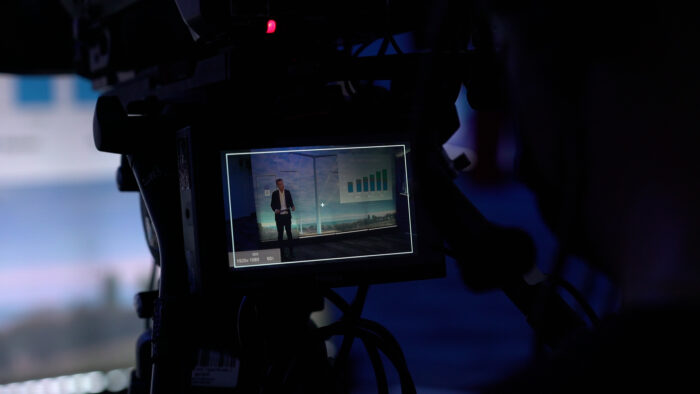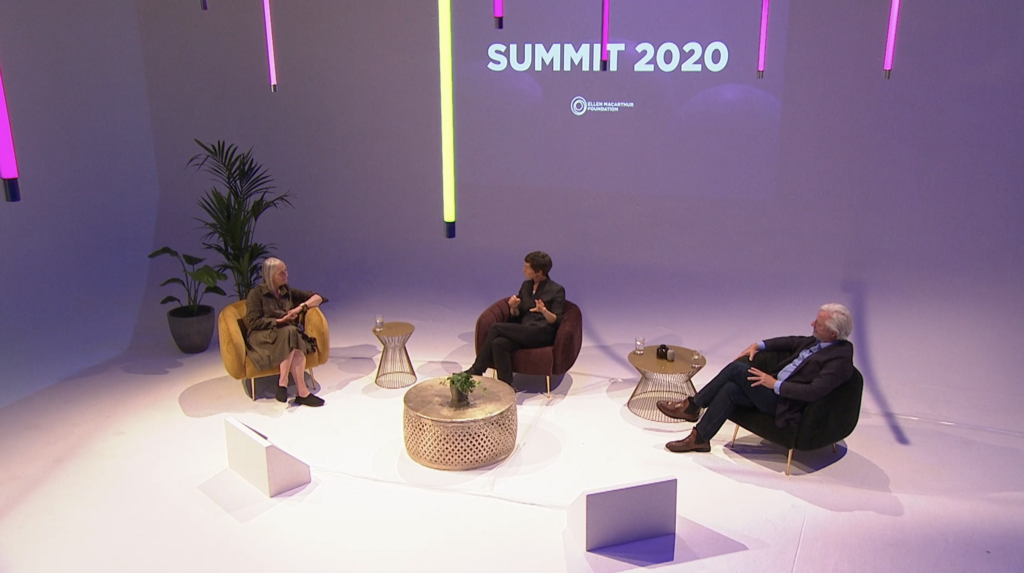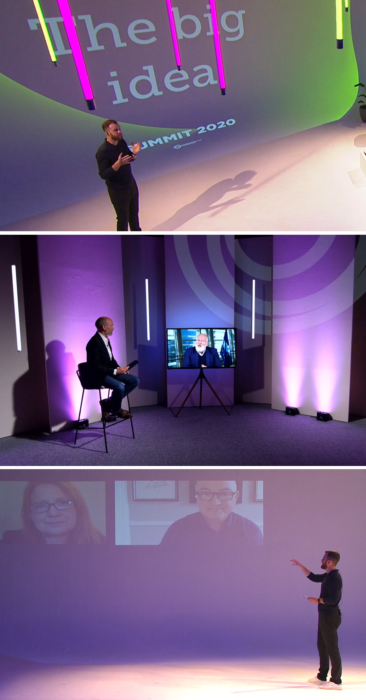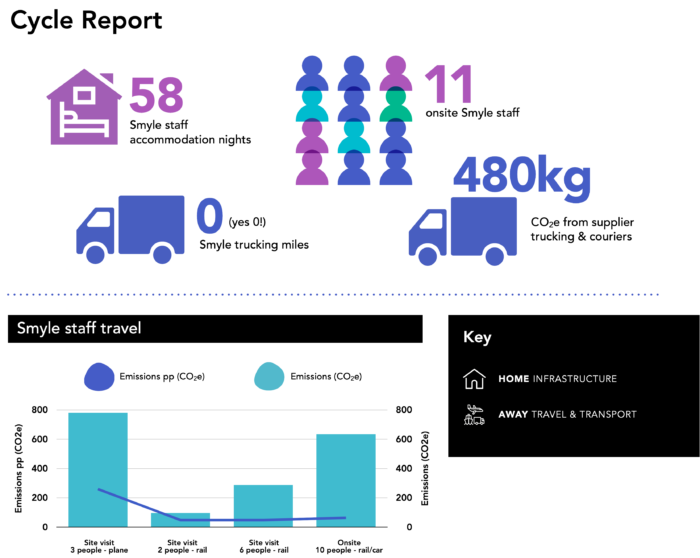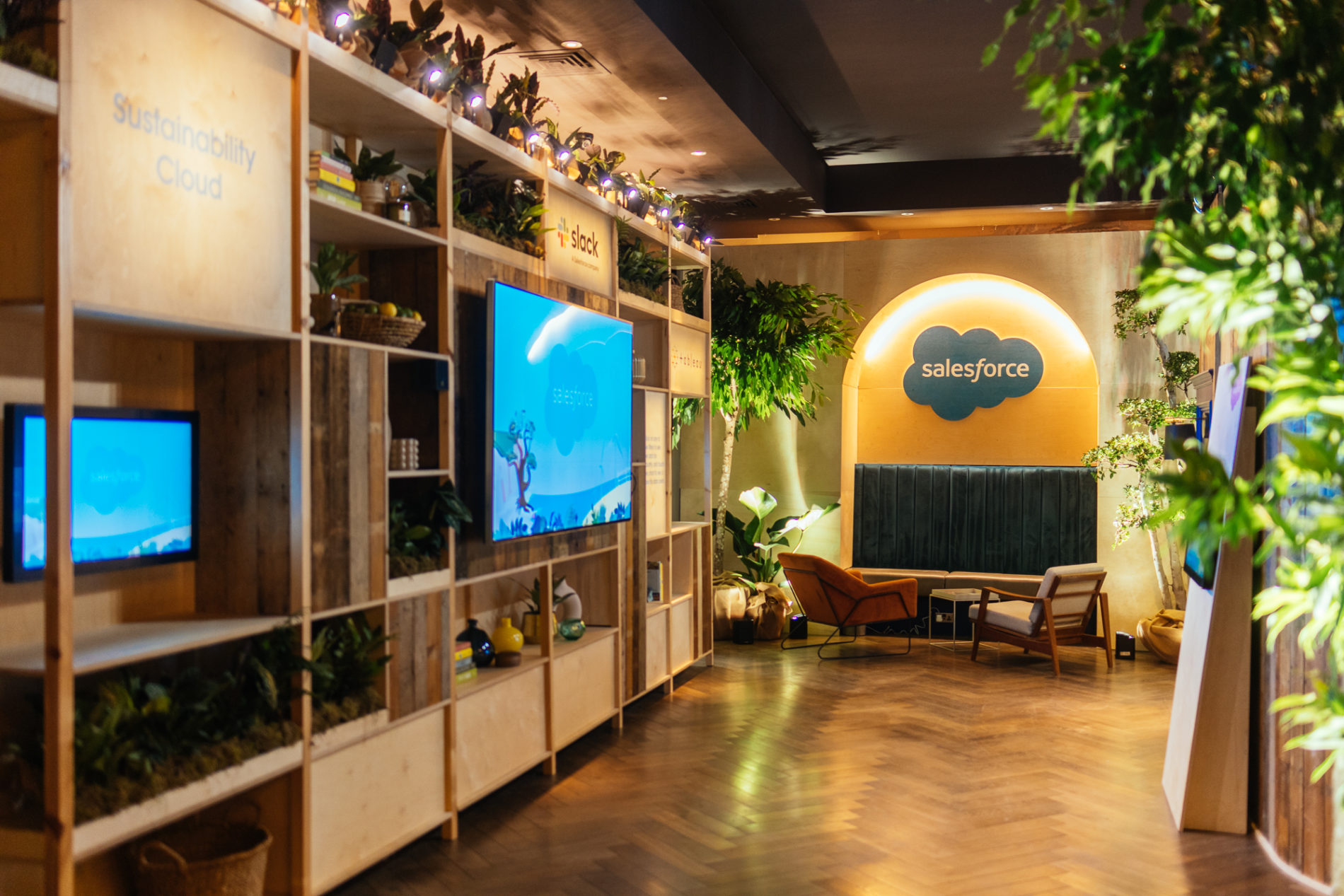
We love working with brands who share our passion for doing right in the world, that’s why we were thrilled to work with the wonderful team at Salesforce at COP26 – UN Climate Change Conference. Check out how we created this beautiful (and sustainable!) experience, as well as how our Cycle service ensured the activation had sustainability at its heart.
The Challenge
Create and manage a meeting space with the lowest possible carbon and waste footprint.
Our Approach
Salesforce is committed to sustainability. Not only do they demonstrate climate leadership in the industry, they also help their customers achieve net zero through their products.
So, the company’s attendance at the COP26 UN Climate Change conference would need to be much more than a superficial brand exercise. Our solution: an event space fit for ‘ecopreneurs’ (including CEO Marc Benioff) to meet with influential COP26 attendees – but one that had the lowest environmental impact.
To achieve this, we transformed a downtown Glasgow venue called The Spiritualist into Salesforce’s COP26 Lodge. Without fixing anything to walls, floors or ceilings we dressed the room using wood reclaimed from a nearby demolition site. Furniture was rented, not bought, and all food served was a mixture of vegetarian, vegan and pescatarian. Creative signage consisted of messaging routed into the wood panels, and where vinyl applications were used, they were of a recyclable nature. Even the trees and pot plants used to dress the venue were rented locally, and returned afterwards.
Suppliers were vetted for their sustainability practices and were required to minimise the number of truck movements. The Smyle staff all, with the exception of a few, eschewed air travel for the much lower carbon impact railways.
Local staff and suppliers were used where at all possible.
The Result
Client feedback was universally positive. In line with the vision and goals of the brief, we ensured our operations were as sustainable as possible, including the use of renewable electricity and carbon neutral gas. Crew travel was minimised, as was their carbon footprint. What small amount of furniture that was bought was donated to local charities to extend their lifecycle. In fact, the percentage of materials reused, donated and repurposed on this project was an impressive 93%. The vegetarian food choice alone saved almost half a tonne of CO2 emissions. Such was the savings that the whole event came in 3% under budget – money that was subsequently donated to the charity Global Forest Generation. Cycle baseline event sustainability data was captured by Smyle to help inform future Salesforce events.
By keeping climate action front and center, Smyle and Salesforce's joint-event demonstrated that it is possible to embed sustainable practices from start to finish at events like we did at the Salesforce Lodge at COP26. Smyle's commitment to sustainability ensured that Salesforce event production decisions at COP26 were vetted through a sustainability lens, and provided expert guidance on environmentally-friendly best practices that created a holistic experience for attendees.Kelly Cowden, Senior Manager, Strategic Events at Salesforce
